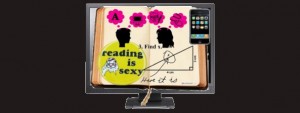It’s a recurring theme – how do we develop our students’ literacy skills? Literacy is “an essential component of a learning society” and as educators we strive to ensure that our students develop the keenest literacy (and numeracy) skills possible so they can be active and productive members of society…blahblahblah…so that they can belong.
Lately I’ve been thinking on how literacy is becoming more complex. Dennis has brought out this conversation in me, first on Learning 2.1 in response to the blog post: What is Web 2.0? and then on his own blog via Boy in the Bubble Revisited.
(I made this, er, image with the tools at polyvore.com. Pretty fun little image collecting site. Go play :))
Basically, with the technologies that have become a way of life – especially for our kids who didn’t know life before myspace, facebook, im, texting, etc…- literacy has whole new dimensions to do with immediacy of communication. We need to recognize and honour it in our teaching – this I believe. I also believe that we need to see it as a subset of the larger context of literacy.
We can do this, perhaps, by asking questions like:
- how does it fit?
- where and when is it valid to use this type of literacy and where and when isn’t it?
- how do we negotiate between different types of literacy?
- and – how do/should we teach all of this?
Dennis responded:
Both have value, both need to be tapped. Stretching the mind is ALWAYS a good thing. And understanding culture and thinking and the wonder of human ingenuity and creativity has to continue.
Personally I think there is more than a ‘both’. Looking at literacy as either digital or everything that came before is too dualistic for me – if I see literacy as a system (and I do) then digital literacy has an affect on all of literacy and vice versa. But I see where Dennis is going with this. It is a way(s) of reading and thinking and interacting with words, numbers, and thought that affects the way we need to teach.
“Literacy is on shifting sands,” [Heather] Blair says. “It’s a moving target. Our definition of what literacy is is a moving target. Our definitition has changed radically.”(from What is Literacy, Nov. 2005, CBC News Online)
Teachers struggle with motivation all the time. Intrinsic motivation – the motivation that comes from within ourselves – is seen as the type of motivation that triggers authentic and meaningful learning. By using tools that students are already comfortable with to access other forms of media/text is one way of developping intrinsic motivation – it may encourage students to ask: how does this fit in my world? And. more importantly, how do I fit in the world?
So, all of this is leading to why I don’t think we can look at literacies as one or the other, as dualistic. I think that an essential question for educators today is how do we integrate literacies in our students? and in ourselves?
If we continue to look at new ways of being literate in contrast to more traditional ways then I think it will only be all the more difficult to make connections with our students while we are teaching. And isn’t that what we are trying to do?
I’m just starting to think about this. I’m hoping y’all comment, ask me some questions to help me clarify exactly what I am getting at here…
tracy

